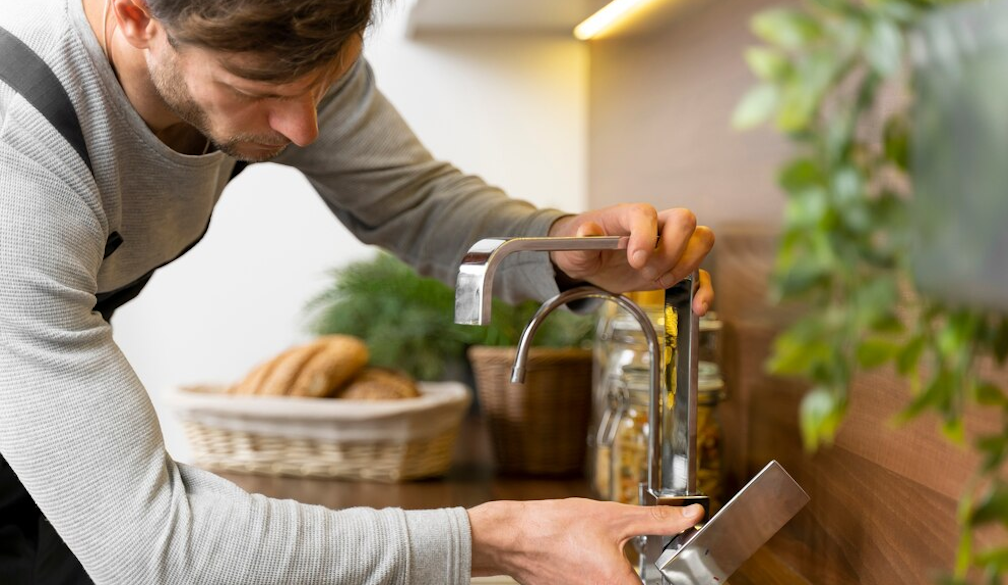What You Should Do If You Have Low Water Pressure
- Written by mothers.net.au

It can be difficult to clean your dishes or take a shower when you don't have enough water pressure.Low water pressure is more than just an annoyance; it can also signify a problem with your home's plumbing system.
What exactly is water pressure?
Professionals measured water pressure in psi or you can say pounds per square inch. The pressure is measured at the main water valve where the water enters your home, whether from a well or a municipal water main. You can ask experts from plumbertotherescue.com.au/ to check water pressure.
Water pressure is critical, especially when using many fixtures and appliances at the same time. Imagine being unable to shower while the dishwasher was running! The proper water pressure ensures that you can perform both at the same time.
What happens if the water pressure is extremely high?
Too much water pressure can weaken your plumbing, resulting in broken or leaking pipes as well as straining plumbing seals and appliances in your home.Unnecessary high pressure of water also causes waste and excessively high-water costs. Connect withplumbertotherescue.com.au/ to get accurate results about your water issue.
What happens if the water pressure is extremely low?
Low water pressure is frequently caused by a broken water main, which means the pressure could be disturbed. Low water pressure, on the other hand, can be restricted to specific regions of your home.
Consider the following low water pressure issues and how to resolve them:
a. You Have Low Shower Water Pressure
Instead of a constant stream, the water from your showerhead sprays erratically or barely trickles out.
This is most likely due to a plumbing device preventing water from flowing from the tap. Mineral deposits can clog the flow of water through the fixture over time. On occasion, you can see the limestone and rust on the showerhead.
Remove your showerhead and clear the filter inside to clean it. You can also soak your showerhead overnight in a basin of white vinegar and water.
If your showerhead is clean but the water pressure remains low, a flow restrictor used to reduce water consumption may be to blame. You can enhance flow by adjusting the pressure regulator.
b. The water pressure abruptly drops.
When you turn on your tap and obtain appropriate water pressure, but then it abruptly drops, you may have a plugged pipe.
Minerals, rust, and other things can obstruct water supply pipes. The buildup reduces water flow and, as a result, water pressure.
A skilled plumber will determine whether a water line blockage can be cleared or if the obstruction has damaged the pipe and must be replaced.
c. You have decreased the hot water pressure.
Do you notice a decline in water pressure when using hot water? This could be due to:
- A water heater that is too small
- Sediment accumulation in the water heater
- Mineral and sediment buildup in hot water pipes
- A plumber can evaluate your water heater to find the source of your low water pressure problem.
d. You have low water pressure as a result of corroded plumbing.
Low water pressure at your tap could indicate a leak in your lines. Sulphate and sediment can cause corrosion in older plumbing systems.A thorough plumbing examination can detect leaks in your plumbing system and repair or replace the affected pipes.
Role of professional plumbers for maintaining water pressure
Enter professional plumbing services – the lifesavers under your sink. While some may be tempted to take the DIY route when faced with plumbing issues, the importance of skilled and experienced professionals cannot be overstated. Here's why:
- Expertise Matters: Professional plumbers bring years of training and hands-on experience to the table. They understand the complexities of plumbing systems, from the smallest residential setups to large commercial structures. Their expertise allows them to quickly diagnose issues and implement effective solutions.
- Time is of the essence: Plumbing problems often demand swift action. A leaking pipe or a burst water heater can wreak havoc on your home and belongings. Professional plumbers not only have the knowledge to identify problems promptly but also the tools and resources to fix them efficiently, saving you valuable time and preventing further damage.
- Quality Workmanship: DIY plumbing attempts can sometimes lead to more significant problems down the line. Professional plumbers ensure that repairs and installations are done right the first time, using high-quality materials. This not only provides peace of mind but also contributes to the longevity of your plumbing system.
- Comprehensive Services: Whether it's a routine maintenance check, an emergency repair, or a full-scale installation, professional plumbers offer a wide range of services. From addressing minor leaks to tackling major overhauls, they have the skills and equipment to handle any plumbing challenge.






